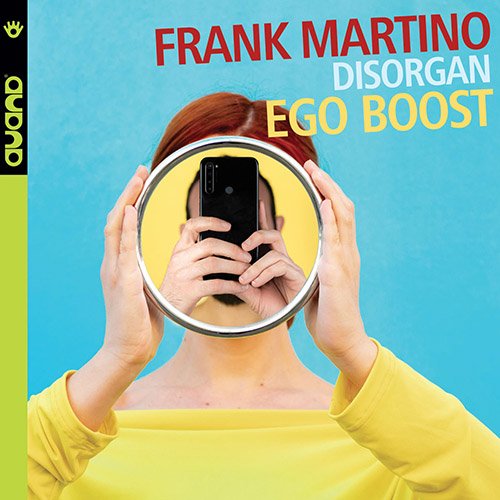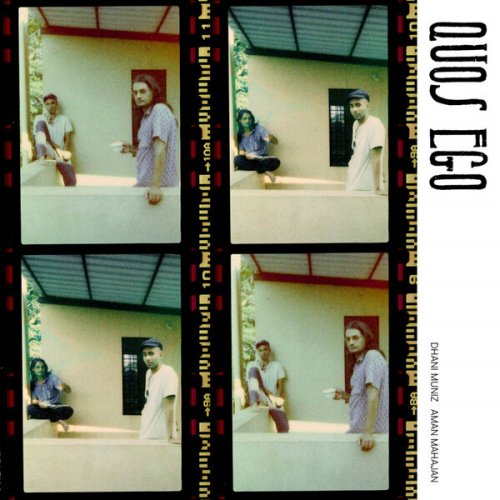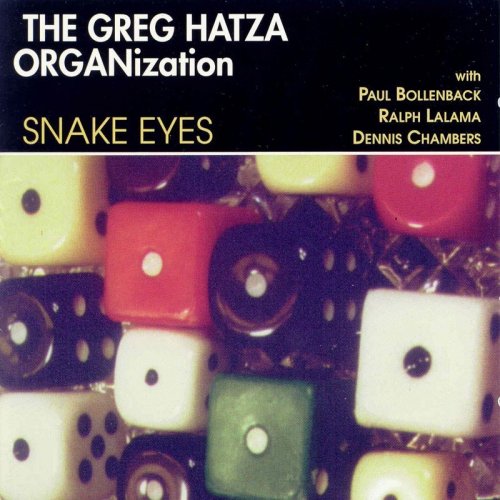Frank Martino - Ego Boost (2020) [Hi-Res]

Artist: Frank Martino, Massimiliano Milesi, Claudio Vignali, Niccolo’ Romanin
Title: Ego Boost
Year Of Release: 2020
Label: Auand
Genre: Jazz
Quality: FLAC (tracks) [44.1kHz/24bit]
Total Time: 34:44
Total Size: 381 / 208 MB
WebSite: Album Preview
Tracklist:Title: Ego Boost
Year Of Release: 2020
Label: Auand
Genre: Jazz
Quality: FLAC (tracks) [44.1kHz/24bit]
Total Time: 34:44
Total Size: 381 / 208 MB
WebSite: Album Preview
1. 5443 (4:41)
2. Raving With The Cats (4:46)
3. Split The Brain (5:00)
4. Fring (5:50)
5. Bruno Wasp (4:38)
6. Gravy Train (5:23)
7. Trees Of Silence And Fire (4:19)
Personnel:
Frank Martino - 8-string guitar, live electronics
Massimiliano Milesi - tenor sax
Claudio Vignali - fender rhodes, Korg Ms20
Niccolo’ Romanin - drums
Frank Martino is a guitar player, composer and producer: an eclectic musician, comfortable with rock, electronics and jazz. For the third album of his Disorgan project (on since 2015), Martino welcomes Massimiliano Milesi (tenor sax), who joins Claudio Vignali (keyboards) and Niccolò Romanin (drums).
The album Ego Boost will be out on June 5th for Auand Records. While Martino’s role as a soloist is limited compared to his past works, he’s more present as a music director of the whole project.
The entire band took part in the creation process. Milesi takes the sound to a more jazzy mood, however the general approach is closer to that of a rock act – which gave Martino the opportunity to play bass (which he loves) in some tracks, thanks to his special 8-string guitar.
Martino penned all 7 tracks except ‘Trees of Silence and Fire’ (Milesi/Vignali). They all have a strong rhythm drive and clearly highlight the group sound. There was no post-production: every track was recorded live, with a huge work on sounds.
Enrico Terragnoli underlines the collective composition side of Ego Boost: “The guitar player knows very well how to serve the band, and follows their suggestions by emphasizing the compositions as well as the polished sound combinations they generate. As a confirmation of their close relationship, you’ll find interesting exchanges on the role of bass player between Martino’s imaginative 8-string guitar and Vignali’s keyboards – an essential harmonic engine in this project. All members follow the same path, which is definitely not granted when such complex meters and forms are used. Credit must be given to Romanin here, and to his being in control and proactive at the same time.
The transition from trio to quartet offers even more chances to play with timbers and narratives, without the use of elaborate post-production or any other studio tricks. Recorded with a live approach, the sound is absolutely real, distant from affectedness even in Milesi’s sax sound range – amazingly super-accurate as usual in his general contribution”.
The album Ego Boost will be out on June 5th for Auand Records. While Martino’s role as a soloist is limited compared to his past works, he’s more present as a music director of the whole project.
The entire band took part in the creation process. Milesi takes the sound to a more jazzy mood, however the general approach is closer to that of a rock act – which gave Martino the opportunity to play bass (which he loves) in some tracks, thanks to his special 8-string guitar.
Martino penned all 7 tracks except ‘Trees of Silence and Fire’ (Milesi/Vignali). They all have a strong rhythm drive and clearly highlight the group sound. There was no post-production: every track was recorded live, with a huge work on sounds.
Enrico Terragnoli underlines the collective composition side of Ego Boost: “The guitar player knows very well how to serve the band, and follows their suggestions by emphasizing the compositions as well as the polished sound combinations they generate. As a confirmation of their close relationship, you’ll find interesting exchanges on the role of bass player between Martino’s imaginative 8-string guitar and Vignali’s keyboards – an essential harmonic engine in this project. All members follow the same path, which is definitely not granted when such complex meters and forms are used. Credit must be given to Romanin here, and to his being in control and proactive at the same time.
The transition from trio to quartet offers even more chances to play with timbers and narratives, without the use of elaborate post-production or any other studio tricks. Recorded with a live approach, the sound is absolutely real, distant from affectedness even in Milesi’s sax sound range – amazingly super-accurate as usual in his general contribution”.


![Dino Siani - Mosaico Barocco (2026) [Hi-Res] Dino Siani - Mosaico Barocco (2026) [Hi-Res]](https://img.israbox.com/img/2026-02/20/56itjdvowkeoaf6sr37eyqjai.jpg)


![William Ackerman - Past Light (1983) [1997 Japanese Edition] William Ackerman - Past Light (1983) [1997 Japanese Edition]](https://www.dibpic.com/uploads/posts/2026-02/1771702726_001.jpg)
![Jan Harbeck Quartet - Arena (2026) [Hi-Res] Jan Harbeck Quartet - Arena (2026) [Hi-Res]](https://img.israbox.com/img/2026-02/21/ta1geqbunymda1vazij2b7te7.jpg)

